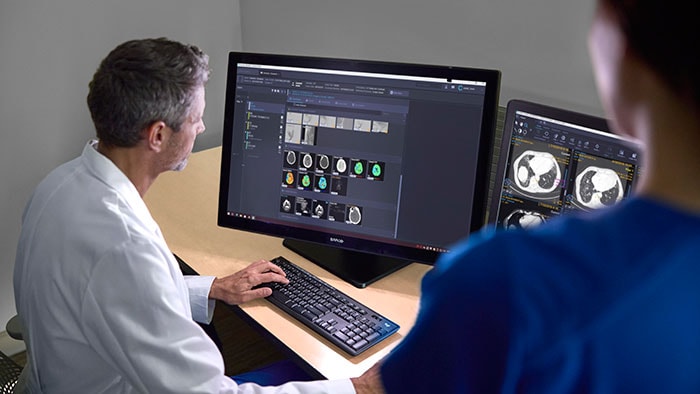The Future of Workflows with Generative AI
As healthcare providers continue to face significant challenges, Philips works closely with clinicians to develop innovative ways to address the increasing clinical demands. By automating routine tasks and optimizing workflows, clinicians would be able to dedicate more time to image interpretation, consultations, and patient interactions. Philips aims to create robust and scalable generative AI applications that leverage state-of-the-art foundation models from Amazon Bedrock, and seamlessly integrate into clinical workflows. In the future, these AI applications may reduce administrative burdens and time-consuming repetitive tasks, helping clinicians focus their expertise where it matters most – in critical decision-making.
One example of how Philips is exploring generative AI as part of its innovation roadmap is through conversational reporting, allowing clinicians to use conversational language to convert findings into structured reports, which can then be reviewed. These capabilities can help construct and revise reports in real-time, add diagnostic impressions, and flag potential inconsistencies. Generative AI has the potential to reduce report editing time, while maintaining high quality by integrating patient histories and clinical context into the final diagnostic report. Optimized reporting could help lead to quicker diagnosis and support better overall quality of care.
“Given the tremendous increase not only in patient volumes, but also in the complexity and number of images per study, radiologists need a tool that limits the distractions of dictation while at the same time increasing accuracy,” said Edward Steiner, Chief and Medical Director, The York/WellSpan Advanced Prostate Care Center, USA. “With Philips’ concept of ambient reporting using generative AI, you simply could speak in a conversational tone and a structured report is generated within seconds. My estimate is a 15 to 20 percent increase in efficiency, and this is just the start.”
“Philips’ cloud-based healthcare informatics solutions allow us to drive better outcomes across clinical disciplines, including radiology, digital pathology and cardiology. We’re working closely with clinicians to ensure workflows become more efficient and give back valuable time to healthcare providers,” said Roy Jakobs, CEO of Royal Philips. “Collaborating with AWS helps us to innovate faster and deliver better care for more people.”
link

